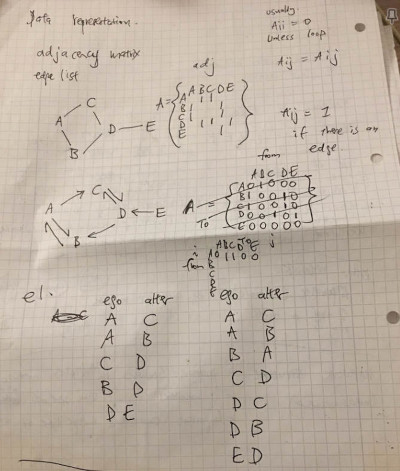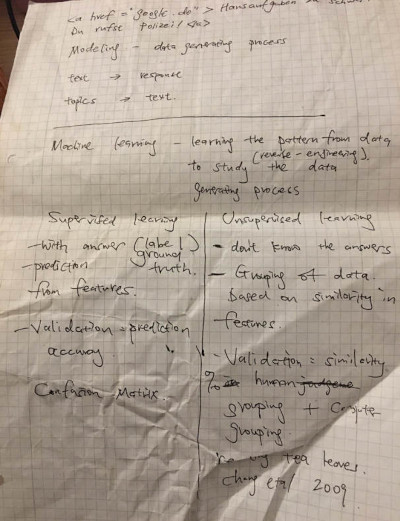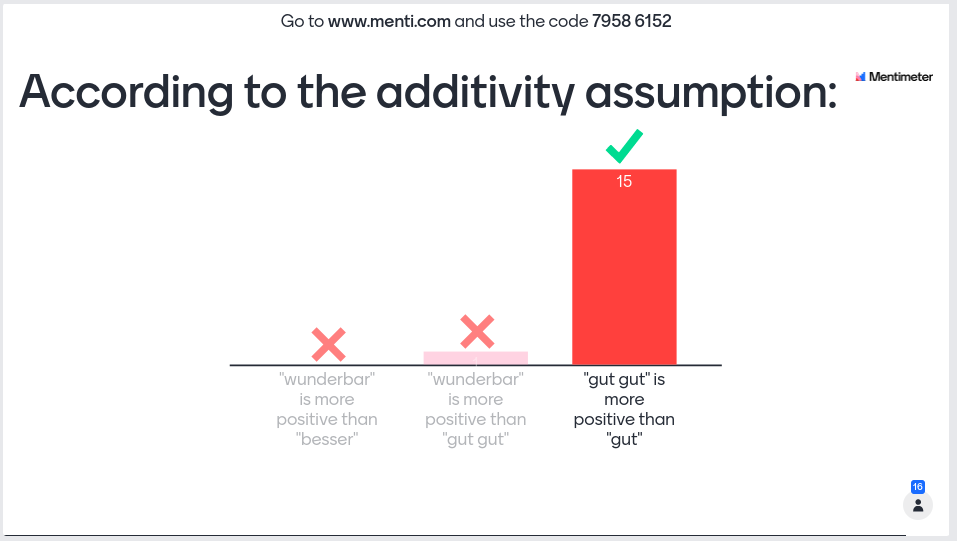chainsawriot
Home | About | ArchiveMy teaching career (2019): A Consolatio
‘The evil of men is that they like to be teachers of others (人之患在好為人師)’ ~ Mencius
I am on my way of cleaning up my office and I found several of my old teaching notes from 2019. As I don’t think I will have a chance to teach anymore in the near future, I think it would be historical to write about my experience of teaching for higher education, probably as a Consolatio. Maybe that could also serve as a note to other academics alike on why you shouldn’t teach like me. You see, having taught like that is correlated with the fact that I don’t need to teach anymore. You probably don’t want to mirror me.
My teaching statement: The honest one, not the one I used for applying jobs

All academics would agree, a healthy dose of teaching is beneficial even to one’s research. You see what you know from a fresh, learner’s perspective. I enjoyed my teaching, not in the context of lying during job interviews. Speaking of job interviews, I got asked several times about remote teaching during the pandemic. My answer was: I didn’t need to teach anymore during the pandemic. Therefore, I have zero experience in remote teaching, except a few remote guest lecture sessions. I literally got some eye rolls for saying that. But I just wanna be honest.
I got even more eye rolls for explaining to the search committee about my teaching philosophy. My teaching philosophy is very simple: don’t scale up the class. Make a class ridiculously small. Ten persons? So be it. Who the fuck would want to attend a thousand-student class?
Because of that, not many students actually got taught by me. Most of my students were actually in Hong Kong. But back then I didn’t do the lecturing, my PhD supervisor did. Except in programming sessions, I had a chance to really teach. In Mannheim, I had the chance to really do lecturing. But I believe I have less that 50 students in total. And I was only utilized for teaching for two semesters. So yes, my teaching experience sucks. Any PhD student would have more teaching experience than me.
Having this really small scale of classes allows what I believe is the most important part of education: a dialogue. I interacted with my students a lot. There were many class activities, question and answer, clarifications, experimentation, etc. etc.
No slides

MKW 726 (Social Network Analysis): Data representation of a network
I took an approach that got frown upon during job interviews: I taught with white board. I never teach in person with slides.
I always hope that I could get proper university education when I was young. But when I was young, I was taught mostly by talking heads reading PowerPoint. Yes, that was the norm and I don’t want to blame my failure to those talking heads. But I believe there must be a better approach to teach.
When I accidentally dipped myself into this damn academic career and felt that my ignorance is not bliss, I needed some proper education. I knew absolutely nothing about communication theory or social science in general, when I started my PhD. When you read my English, even my English of this day, you’ll know that I am just a bit better than the illiterate. Most of my “academic” knowledge and technical skills are actually self-taught. I was quite ignorant also on how to teach and also how to even learn through lectures. But it shouldn’t be like so for students, my students, at least.
I tuned to YouTube for the proper education from MIT, Stanford, or UCLA etc. I couldn’t (and still can’t) afford that, but YouTube is great and helps to equalize the playing field. I saw how proper education should look like. I remember watching MIT 6.0001 by Eric Grimson and John Guttag in the last century and the way they wrote with chalk on the blackboard even for a programming class all the time. Of course, a computer is in their class, but as a condiment, not the main ingredient. Students are not supposed to looking at the slides and listening to a talking head. Instead, students are supposed to focus on the professors and what they are explaining.
The late Patrick Winston once said “It (chalk) is the right tool for speaking, when your purpose is informing. The slides are good when your purpose is exposing.” I am still taking classes from these top universities. Even for those top universities, the classes —to be honest— are not as good as the ones I saw in the last century. One thing, I notice, is there is too much exposing, not too much informing. The only two classes I really enjoy recently are both from Yale: Ian Shapiro’s Power and Politics in Today’s World and Timothy Snyder’s The Making of Modern Ukraine (it is still running). Both classes are quite similar: there are almost no visual aid. Just a professor, walking around, talking, asking questions. Incredibly informing. Another class I also enjoy is the late Marvin Minsky’s The Society of Mind. It almost likes someone chatting with you for 2 hours straight, but still incredibly informing.
I tried to reverse engineering how the professors in those top universities teach via YouTube videos. Unfortunately, I didn’t get assigned to classrooms with blackboard. But I insisted that I should at least have a white board. I bought myself some multi-color whiteboard makers. I even for a time brought with me a bottle of rubbing alcohol and a piece of cloth. Not for disinfection but for cleaning the ghosting left on the whiteboard.

MKW 724 (Quantitative Methoden I): Supervised and unsupervised learning
I prepared handwritten notes. I tried to experience the graphical quality of writing on the whiteboard. Writing and drawing on a whiteboard will lengthen the time needed to display ideas. But who needs that to be fast? The speed of writing, for most people, is similar to the speed of absorbing an idea. The immediate display of a wall of text after your mouse click is too fast. You are not in your 10-minute ICA session. You are informing your students! I rarely see a course that can teach well with slides. The two exceptions are Jennifer Widom’s Introduction to Databases and Donald Sadoway’s Introduction to Solid State Chemistry. Even for these classes, Professor Widom writes on the slides; Professor Sadoway writes on the blackboard most of the time, slides for him are just, well, for exposing.
Unlike a class with slides to guide you through, a class without slides needs careful choreography. Like any choreography, one needs rehearsals. I usually need to mentally run the whole lecture in a quick speed for several times the night before the lecture. I read in Winston’s book that he rehearsed his classes in a classroom! He found an empty MIT classroom with that multi-blackboard system at 7am and rehearsed his teaching on that day. That’s professionalism.
But before I move on, I just wanted to stress that I am not against teaching technology (see later). I just don’t like to teach by slides.
The structure of my classes
My classes had a regular rundown. For some strange reasons, a session was 3 hours long. And my courses were 6 weeks.

In every session, I gave a quiz in the first 10 minutes facilitated by a classroom response system such as Mentimeter. The quiz was about the most important things I taught in the last session. From there, I knew how well did the students learn. It also gave me an opportunity to explain some hard, but important things to my students again, if the quiz showed that many students didn’t understand.
After the quiz, I summarized what we learned in the last lecture in another 5 minutes. Then we dived into the new material with the white board. There were class activities that the students are actively involved. For example, I asked my students to create a network of European countries and they needed to find out the neighboring countries of some core countries and then use BFS to complete the network. There was also another activity to create a social network of the class. There was also a live word intrusion test of a topic model. I believe that an instructor should activate students’ empathetic mirroring behaviors. You can talk your way into what those concepts are. But it works better if they find out how those concepts work on their own.
I also threw a lot of questions. Like many instructors, there were softballs and hardballs. For hardballs, I even threw questions I don’t know the exact answer myself. For example, I asked my students what are the differences between a Gemeinschaft (community) and a Gesellschaft (society). Given my understanding of the German language, I actually didn’t know the details in the German context. But it leaded to a little debate among the students.
After introducing the concept(s) of the day, I gave a break. A long break for 10-20 minutes, almost like a recess. Students could even walk to buy a coffee at the nearby cafe. Of course, I stayed and it’s almost like an informal Q&A session.
After the break, then came the “practical”. Together, we ran some code that I prepared. Usually, it was designed as a data analysis exercise on the concept(s) of the day. In-between there were some “your turn” questions. The students needed to figure out how to solve those little puzzles themselves. I checked how many of them could get it solved. And then I showed my solution.
We then discussed the results. Again, a lot of questions and answers. A dialog.
After the practical, I summarized what we learned in the whole session. Usually, what have been summarized were asked in the quiz of the next session. I then previewed the next session, and then the students knocked the table (the German way of clapping) and went away.
I cleaned the whiteboard first with the duster and then with some alcohol. The session was adjourned.
The structure of my courses
I don’t believe in exam. I am a victim of the exam culture. Exam doesn’t have the reliability and validity as a measurement of students’ understanding of the material. I was a (bad) student too and I know that exam is just a push for cramming material.
We had informal quizzes in every session. But as I said, those quizzes were for revision. I rather like this kind of quizzes. Borrowing Professor Sadoway’s words, those quizzes are weekly “celebration of learning”.
I believe in problem sets, though. Students had weekly problem sets. But I gave them two weeks to solve. Therefore, the deadline for the PS of week 1 was coincided with the teaching day of week 3. With such an arrangement, students could ask me about the PS1 in week 2 and week 3.
Also, they had the final group project. What they needed to do were a presentation and an extended abstract.
In the presentation session, the fellow students could also ask questions.
For the extended abstract, I gave written feedback.
Debriefing: Don’t do that
As I said at the very beginning, I don’t need to teach anymore in the near future. Mentally I attribute this to my way of teaching, although there is no obvious causal relationship. Also, I don’t claim that my way of teaching is better or anything. Obviously, it is not and therefore I eliminated myself from that.
This is a Consolatio, a speech made at funerals to comfort mourners. I am the only person to mourn my teaching career and I need that comfort. Don’t take the above as my advice on how to teach. You can learn better teaching from real educators. Not me.